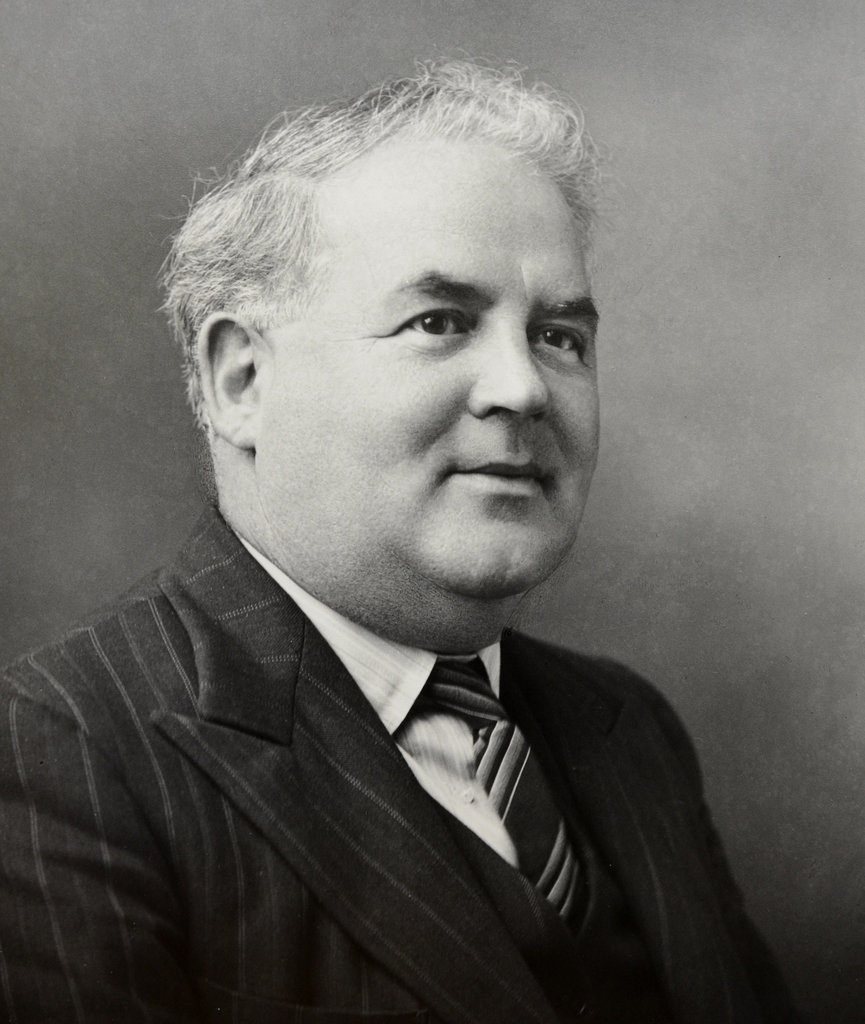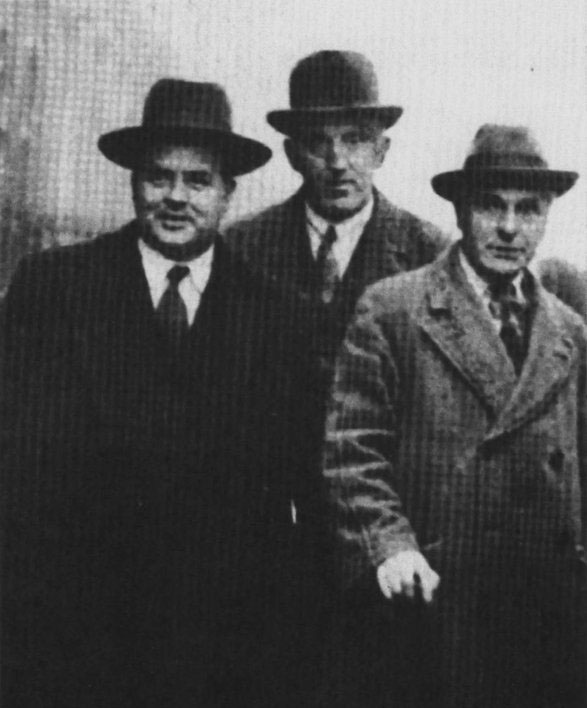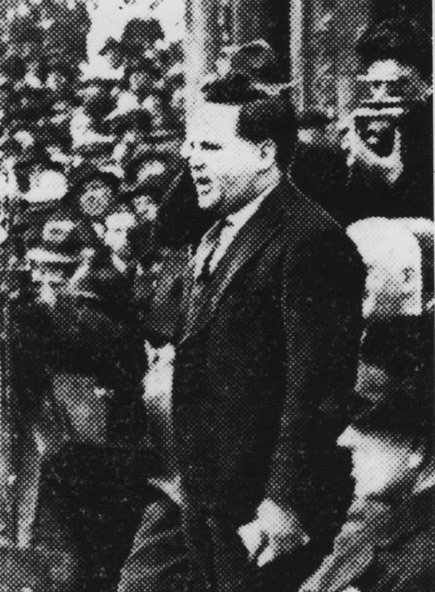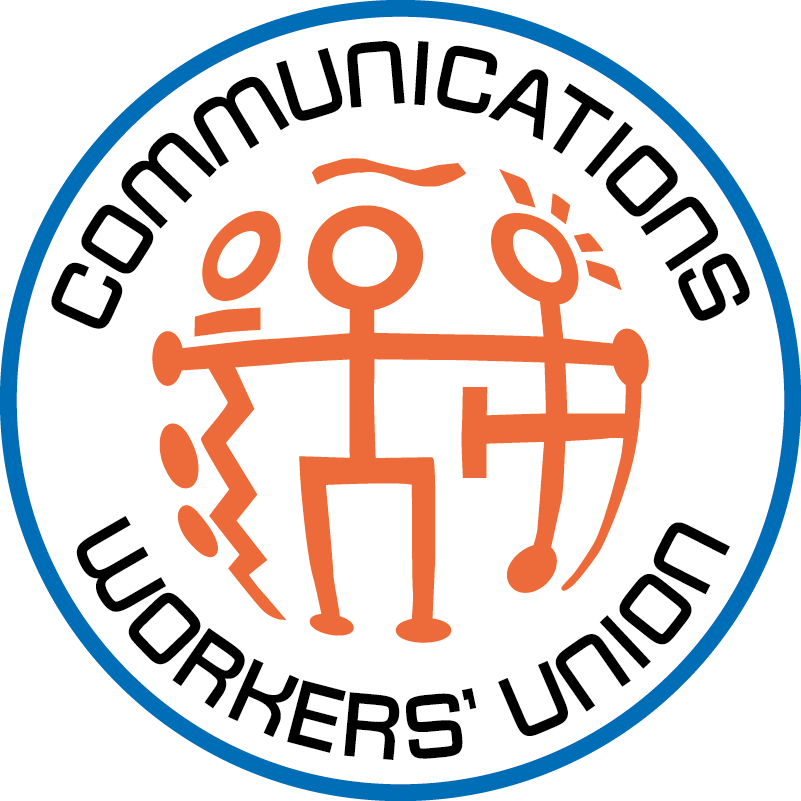William Norton (1900-1963): An Unsung Trade Union & Labour Leader
by Barry Desmond and Charles Callan
 William Joseph Norton was born at 21 Bath Avenue, Dublin, on 2nd November 1900. His parents were Patrick (1875-) a tram conductor and Bridget (née Malone) (1881-) Norton. A Roman Catholic family, his parents were from Dublin and County Laois respectively.
William Joseph Norton was born at 21 Bath Avenue, Dublin, on 2nd November 1900. His parents were Patrick (1875-) a tram conductor and Bridget (née Malone) (1881-) Norton. A Roman Catholic family, his parents were from Dublin and County Laois respectively.
In 1911 Patrick, by then working as an auxiliary postman, and Bridget Norton and their two youngest children lived in one room at 17 Mount Pleasant Buildings, Rathmines. In their recently built block of mainly single room municipal apartments, thirty rooms housed 81 people. Such was an example of the mind-set of the policymakers of the times. William and his younger brother were then living with their grandparents at 41 Bath Avenue.
The eldest of eight children, William attended the local national school. On leaving school aged 13, he commenced work in November 1913 as a Post Office Boy Messenger at 3s 6d. per week. By 1917 he was a ‘Learner’ and achieved first place in Ireland in the Post Office Clerkship examinations of that year.
He became involved in trade union branch affairs and by 1921 was on the National Executive of the Association of Irish Post Office Clerks. In September 1922 there was a major postal strike in a vain effort to stave off wage reductions. There were four unions involved; on two occasions, at Amiens Street and at Crown Alley, those picketing were fired on by soldiers and two people were injured. In 1923 the Post Office Workers’ Union (POWU) was established when two of the existing postal unions merged.
In 1923 Norton became POWU honorary Organising Secretary and in 1924 was appointed full-time General Secretary and editor of The Postal Worker. Over his years as General Secretary, POWU membership grew from 3,500 to nearly 7,000. Norton was an undoubted success as a trade union leader. From 1926 he was a member of the Postal Telegraph and Telephone International representing Ireland and in 1957 he was unanimously elected as its President. From its inception, the POWU was an Irish Labour Party and Trade Union Congress (ILPTUC) affiliate and from 1926 to 1929 Norton served on its Executive.
William Norton was elected, along with Marie Johnson and Henry Barry, as Labour member of Rathmines Town Council in 1925. He was elected as Labour Deputy to Dáil Éireann at the County Dublin by-election in February 1926, caused by the death of the Independent Deputy Darrell Figgis. He was the first Labour candidate ever to win a by-election.
The Labour Leader, Thomas Johnson, already held one of the constituency’s eight seats. At the June 1927 election Norton Failed to hold the second Labour seat and in the election three months later, in order not to imperil the Labour seat Norton did not stand, leaving Johnson the sole Labour candidate.
Following the unexpected death of Labour Deputy Hugh Colohan in April 1931, at the ensuing by-election in July, Norton was the unsuccessful Labour candidate. However, six months later Norton was elected Labour Deputy for Kildare in 1932.
Norton was re-elected, sometimes heading the poll, at the ten General Elections up to and including 1961.
Norton was a leading advocate of the organisational division, effected in 1930, of the ITUC from the Labour Party. The Party went into the February 1932 General Election with 13 seats and lost six, including that of the Leader, Thomas J. O’Connell of the INTO. Although the youngest Labour Deputy, Norton was elected Party Leader in February 1932, a position he held for 28 years.
In 1932 Norton and Labour ensured the election of Fianna Fáil to office for the first time. However, Labour in its support was insistent on the provision of a major housing programme, work for and proper maintenance for the unemployed, industrial development, widows’ and orphans’ pensions, and progress on other issues. An immediate plan for the provision of 40,000 local authority houses was announced, Unemployment Assistance was introduced in 1934, and Widows and Orphans Pensions in 1935. A three-man Housing Authority was also appointed with Thomas Johnson as a member that was to oversee the building of 80,000 local authority dwellings between 1932 and 1942. The Fianna Fáil manifesto in the 1932 election also promised “to establish an arbitration board to deal with the grievances of the civil service”.
In the following four elections the number of Labour seats increased to eight (1933), to thirteen (1937), declined to nine (1938) and almost doubled to seventeen (1943).
Throughout the 1920s and 1930s, in the complex situation created by the incorporation of pre-1922 civil servants, Dáil Éireann civil servants (1919-1922), Provisional Government civil servants (1922) and new recruits after 1922, Norton was the leading and most effective trade union official in the public service, ably aided from 1928 to 1940 by Archie Heron, General Secretary of the Civil Service Clerical Association (CSCA). This took place in the context of hostile government opposition from both Cumann na nGaedheal and Fianna Fáil. The ‘Whitley Councils’, joint ‘staff’ and ‘official’ bodies under an independent chairman that dealt with industrial relations issues that existed prior to independence were abandoned by the Irish government. The government was adamant in its refusal to institute an agreed civil service conciliation and arbitration system. As ‘non civil servants’ neither Norton nor Heron, although representing the bulk of civil servants, were afforded official recognition by the Department of Finance.
One of Norton’s many roles was as the Secretary, and driving force, of the Transferred Officers’ Protection Association, a group of civil services unions established to ensure that the provisions of the Anglo-Irish Treaty of 1922 and of the Saorstát Éireann Constitution were adhered to in regard to civil servants.
In March 1937 Norton’s Dáil motion demanding the provision of an agreed conciliation and arbitration scheme for the civil service was defeated. In April 1938 John A. Costello moved a similar Dáil motion, and significantly Costello, who also frequently acted as Senior Counsel for the ITUC, based his reasons and acknowledged that he was doing so, almost entirely on those set out by Norton in his speech of March 1937. When the motion was carried by one vote, rather than implement its wishes, de Valera dissolved the Dáil. Seán MacEntee was the Minister for Finance and he became a bitter opponent of Norton over the next 20 years. Norton was re-elected for the Carlow-Kildare constituency, his growing political stronghold, with great POWU support.
 Norton and Senator Tom Johnson had worked hard to build the Labour party in the 1930s and to create a semblance of unity as the trade union warfare between the Larkins and William O’Brien intensified. They had also to contend with the bitter residues of the Civil War. The campaign against both the Trade Union Act and the Wages Standstill Order of 1941 by the ‘Council of Action’, organised by the Dublin Council of Trade Unions and Labour Party branches, galvanised trade union and labour opposition that revived the fortunes of the Party. The Labour Party became the biggest group on Dublin City Council in 1942 and, as already noted, almost doubled its number of Dáil Deputies in 1943.
Norton and Senator Tom Johnson had worked hard to build the Labour party in the 1930s and to create a semblance of unity as the trade union warfare between the Larkins and William O’Brien intensified. They had also to contend with the bitter residues of the Civil War. The campaign against both the Trade Union Act and the Wages Standstill Order of 1941 by the ‘Council of Action’, organised by the Dublin Council of Trade Unions and Labour Party branches, galvanised trade union and labour opposition that revived the fortunes of the Party. The Labour Party became the biggest group on Dublin City Council in 1942 and, as already noted, almost doubled its number of Dáil Deputies in 1943.
However, in January 1944 the ITGWU disaffiliated from the Party and five of its eight associated Labour Deputies formed a breakaway National Labour Party (NLP). A ‘red-scare’, based on the fact that a score (at most) of ex-members of the Communist Party of Ireland had joined the Party in 1942, was manufactured to justify the breakaway. A more potent cause was the decision of the Party, agreed by Norton, to nominate the two Larkins, James Junior and James Senior, in two Dublin constituencies in 1943. Both were elected to the Dáil much to the fury of the ITGWU. In 1945 the INTO also disaffiliated from the Party under pressure from the Catholic church, which had stridently opposed the term ‘Workers’ Republic’ in the Party’s constitution. Both the ITGWU and the INTO had been the major affiliates and contributors of personnel and funds since 1922, and their disaffiliation seriously weakened the Labour Party. At the 1944 General Election the Labour Party held eight seats and the NLP four, their combined twelve being a loss of five compared to the 1943 total.
The ITUC itself was split in April 1945 when ten Irish unions disaffiliated and formed the Congress of Irish Unions (CIU). Norton and the POWU remained loyal to the ITUC, as did many other Irish unions, including all the civil & public service and teachers’ unions; an action that helped bring about eventual unity and the formation of the ICTU in 1959.
In 1948 the Labour Party won an extra six seats bringing its total to 14, whilst the NLP won one, bringing its total to five. Although efforts were made by the CIU leadership, led by the ITGWU officers, to ensure that the NLP supported the return of Fianna Fáil to office, the first inter-party government was formed in February 1948. Norton was credited with being the architect of that government. In a government of 13 members from five political parties, Norton was Tánaiste and Minister for Social Welfare. The other Labour Cabinet member was Timothy J. Murphy, Minister for Local Government, and Brendan Corish was Parliamentary Secretary to the Minister for Local Government and Defence. Notably, the Labour Cabinet Ministers were elected by the Parliamentary Party rather than being nominated by Norton as Party Leader. James Everett, NLP Leader, became Minister for Posts & Telegraphs.
Norton, besides being the first Labour Tánaiste and Cabinet Minister, was also the first Minister for Social Welfare. Before 1948 health and welfare were within the remit of the Department of Local Government and Public Health. One of the first acts of the new government (within two months of taking office) was to introduce an independent public service conciliation and arbitration scheme. It is said that, at the first conciliation and arbitration meeting, Norton (Tánaiste, Minister for Social Welfare and Acting Minister for Posts & Telegraphs) mischievously appeared as POWU General Secretary and negotiated with officials in his own Department.
Norton seems to have devoted his efforts to keeping the disparate government together and acted as its ‘problem solver’ to the extent of divesting himself of the leadership of his Party in the Dáil for the term of government.
One of Norton’s first acts was to implement a substantial increase in the basic old age pension. The so-called system of social welfare was in poor law tatters. During the Fianna Fáil-de Valera government from 1932 to 1948 the total increases in weekly old age pensions were two shillings and six pence in rural Ireland and five shillings in urban areas! Norton immediately increased pensions by five shillings per week. He then published a White Paper on Social Security in 1949 which proposed to unify the three schemes of sickness, unemployment and widows’ & orphans’ pensions. He also proposed to introduce, for the first time, maternity allowances, retirement pensions and death grants. The last ensured that the poor were relieved of the inordinate fear of ‘being buried as a pauper’. He also negotiated reciprocal social welfare benefits with the British and Northern Ireland governments.
In these historic endeavours he met a barrage of criticism from chagrin elements in Fianna Fáil, from some reactionary Catholic sociologists, and the major farming organisations. Norton received little credit for his endeavours from a divided trade union movement and was overshadowed by the TB hospitals programme of Noel Browne and the debacle over the Mother and Child scheme. However, Norton did receive the full support of Taoiseach, John A. Costello, who was familiar with the sparse system of Workmen’s compensation. Thus the foundations for the social insurance system were laid in Ireland and mirrored those of Britain and Northern Ireland.
One of Norton’s proudest achievements was the establishment of the Industrial Development Authority (IDA) in 1949. There was sparse enthusiasm for the proposal in the Department of Industry and Commerce which saw its role diffused. The Secretary of Finance, J.J. McElligott, feared the IDA would be a ‘crackpot socialist planners’ forum’. But Norton convinced the Minister concerned, Dan Morrissey, to set up the IDA. The seeds were sown towards the decline of state tariff protectionism and the introduction of foreign industrial investment in the Irish economy. Irish historians have downplayed Norton’s role in this area of economic policy.
 When the Labour Party and NLP reunited in June 1950, Norton retained the Party leadership. In 1951 Norton also acted as Minister for Posts and Telegraphs, when James Everett was absent through illness.
When the Labour Party and NLP reunited in June 1950, Norton retained the Party leadership. In 1951 Norton also acted as Minister for Posts and Telegraphs, when James Everett was absent through illness.
The Labour Party entered the 1951 General Election with 19 seats and returned with 16. In 1954 the Party secured 19 seats, and between then and 1957 Norton was again Tánaiste and Minister for Industry and Commerce in the second inter-party government of three parties. His Labour cabinet colleagues were Brendan Corish (Social Welfare), James Everett (Justice) and Michael Keyes (Posts and Telegraphs), with William Davin as a Parliamentary Secretary (Local Government).
Some of his latter achievements included the Factories Act, 1955. Norton and the IDA engaged in protracted negotiations with the major oil companies to erect an oil refinery in Whitegate, County Cork. This significant development was completed by April 1959, was fully unionised, but the work of Norton was completely ignored at the opening. Regarding the late conversion of his opponents to the need for external investment, on 5th December 1957 in the Dáil he could only remark that “barely had I said that when a howl of criticism was released from all the shallow minds of the Fianna Fáil party, saying that this was absolutely anti-national… I notice there has been a rapid conversion…”.
From 1940 until he died, Norton was a member of the Council of State and from 1940 to 1945 was a member of the all-party Defence Council. He was a member of the Dáil Public Accounts Committee. His experience as a member of the Council of Europe probably influenced his positive attitude towards Ireland’s aspirations to join the EEC; a stance that put him very much in the minority in the political and industrial labour movement.
Norton was a ‘labourist’ rather than a socialist. He was a staunch Roman Catholic and in 1959 had a private audience with Pope John XXIII. Norton has often been accused of being a conservative trade union and labour leader. He did, however, trenchantly oppose the Blueshirts in the 1930s and the strident republican rhetoric of de Valera and the IRA, and dictatorship in any form. He was unwavering in his defence and advancement of trade union and worker recognition, and public service employment rights. His social conservatism was reflective of the dominant social mores of those decades. During the Mother and Child crisis he made valiant efforts, with the officers of the ITUC, to resolve the dispute.
Norton resigned as Labour Leader on 24th February 1960 and was replaced by Brendan Corish. It was only after his resignation as Labour Leader that he applied for and was awarded a War of Independence medal, for covert activities within the postal services on behalf of the military intelligence operation of Joe McGrath and Michael Collins. He remained a close confidant of Joe McGrath.
Viewed over his 36 years of leadership, as the POWU General Secretary from 1924 to 1957 and as Labour Leader from 1932, Norton’s workload and performance was phenomenal. The Dáil debates reveal him as having been a significant national figure and diligent constituency representative. Assiduous in pursuing the minutiae of constituency affairs and nationally important issues under almost every heading, his frequent and often lengthy contributions displayed a wide-ranging knowledge and a cogent fluency.
On his death The Irish Times was of the view that “with Mr Lemass he probably was the ablest and shrewdest deputy in the Dáil”. Mr J.C. Horgan of the Higher Officers Associations recorded: “In 1952-53, when the civil service displayed unprecedented fury and solidarity in resisting the government’s attitude to the McKenna award, it found its inspiration in Bill Norton. He was at the centre of the fight, addressing words of encouragement, making decisions, giving directions”.
Norton never received the recognition or credit that is his due. His contribution to the development of national politics and the stability of the State, in providing the vital element in the successful transition of power less than a decade after the Civil War, and again in 1948, has been downplayed by historians. So too has his contribution to the wellbeing of workers in the communications sector, in the civil and public service, and of the people as a whole, especially in respect of workers, their families, widows and orphans, the poor and the elderly. An indication of Norton’s stature in the labour movement was shown when he was chosen to deliver the oration at the grave of ‘Big Jim’ Larkin in 1947.
The animosity and venom voiced and written against him, particularly during the vicious splits in the trade union and labour movement in the 1940s, was regularly featured in the editorials of the Irish Press and among the CIU leadership, who did not forgive him as a key figure in the formation of the first inter-party government, revealed more about his critics than it did about Norton.
William Norton died aged 63 at his home, 6 Merlyn Park, Ballsbridge, Dublin 4 on the 4th December 1963. Following a funeral service at the Star of the Sea Church, Sandymount, he was buried at Deansgrange Cemetery. His funeral was attended by President Éamon de Valera, the Lord Mayor of Dublin, many Deputies and Senators, and members of the judiciary. Brendan Corish paid tribute to his life and work at the graveside.
Predeceased by a daughter, he was survived by his wife Helena, daughter Eileen and sons Patrick, Kevin, Brendan and William.
Some of William Norton’s papers (as part of the POWU records) are held at the Irish Labour History Society archives.
